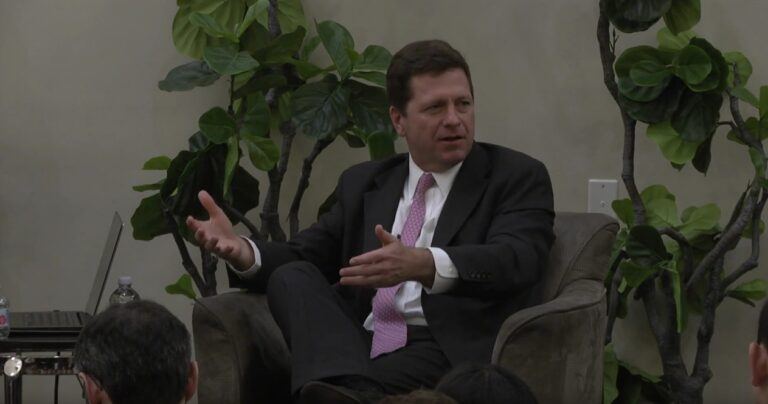On Friday (August 26), Jay Clayton, the former Chairman of the U.S. Securities and Exchange Commission (SEC),shared his thoughts on why it is taking so long to get a regulatory framework for crypto in the U.S.
Clayton’s comments were made during a conversation with Betty Quick, co-anchor of CNBC’s Squawk Box.
Clayton said:
“Why is this so hard?… Look, there’s a number of factors and I think if we understand those factors, we are going to do a better job of moving forward, which we need to do. I’ll start at the end, which is that the technology underlying the crypto revolution — to use a load word — is going to come to finance.
“It’s so compelling from an efficiency standpoint and certainly standpoint that it’s going to come. The problem is how do we get there. And there’s a lot of factors that have driven difficulty to this. One is pure emotion. And people on both sides of this debate have plenty of evidence. There’s been plenty of fraud… People, on the other hand, see the power of this technology, the network effects… And how do we break that long tail?…
“Well, we recognise what’s driving this. One is raising money for ventures in the U.S. is largely an institutional exercise. We raise money for growth companies from institutions not from individuals. Crypto tried to raise money from individuals. We also largely regulate domestically. Crypto is a global innovation. So you have a regulatory overlay, which usually focuses on institutions, usually focuses domestically, and our product is global and retail.“
Quick then interrupted Clayton to say that to someone looking at the U.S. regulatory landscape from the outside it looks like there’s a turf war going on involving the various U.S. regulatory agencies. As for crypto entrepreneurs, she said that they were behaving like Silicon Valley entrepreneurs, moving quickly and breaking things, and leaving the regulators to deal with the mess they are creating.
Clayton replied that the problem with this kind of thinking by the crypto industry is that the SEC cannot give up the core of its financial regulation ability. He also mentioned that “regulatory co-ordination” is needed. He went on to say that one easy place to start is with regulation of stablecoins.








